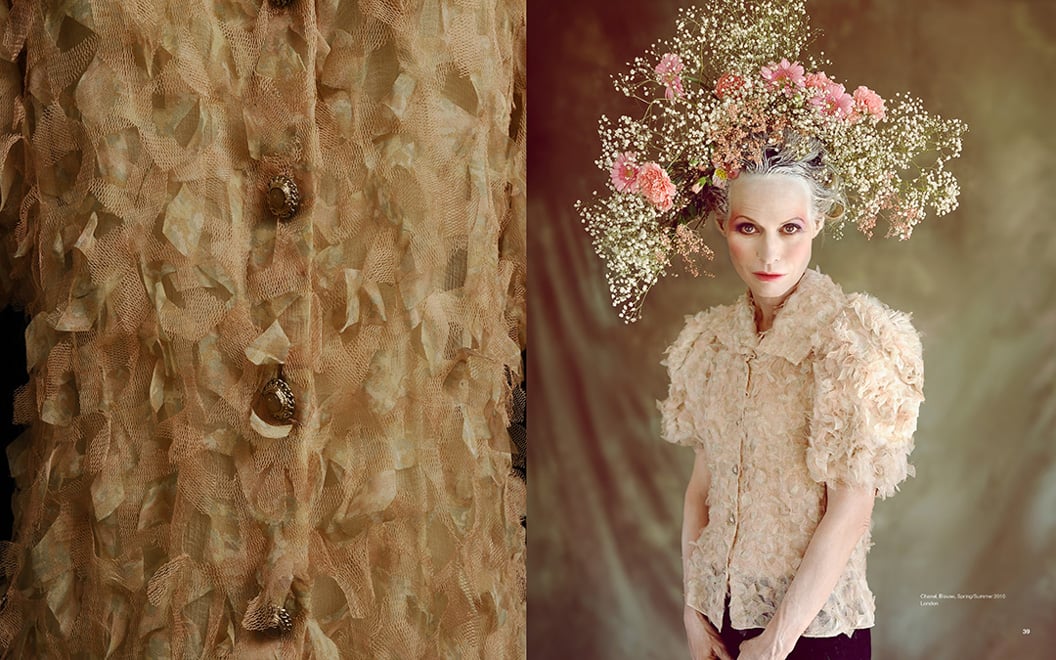This past Wednesday, Frederic Aranda — a celebrated fashion photographer and regular contributor to publications like Vogue and GQ — and Christine Suppes– a garment collector and founder of fashionlines.com — gave a talk at the Stanford Bookstore regarding their recent publication “Electric Fashion.” The book, touted as an incredible photographic accomplishment, is an anthology of photographs featuring the garments in Suppes’ 30-year collection.
At the bookstore, the duo flaunted a few of the most notable shoots and outfits from “Electric Fashion,” including a series of looks based on the four seasons.
For the spring outfit in the collection, Suppes employs fabric with a natural, woody texture and repurposes flowers as headwear. The autumn look appears brooding and somber, featuring a piece by Chanel rippling with sheer fabric and against an icy, overexposed background.
Aranda’s photography highlights the gorgeous silhouettes and embroideries of different garments. The pieces are, for the most part, shot against dark backgrounds, brightly lit so that the clothing commands attention and its minute details are visible. Alexander McQueen’s gowns, for example, appear airy and fluid, hugging and extending from the contours of the body.
Though Suppes is not a model by trade, she feels the process of modeling for Aranda can be considered “performance art” — a sort of choreography between photographer and subject. She allows herself to become a medium for her clothes and allows herself to be vulnerable in front of Aranda’s camera lens.
Aranda describes Suppes’ style as a sort of fearless fashion. “Sometimes she does not even look at herself in the mirror,” Aranda muses. Suppes has complete faith in the designers and Aranda’s vision of the clothing. Indeed, the Bay Area native is unafraid of showing off her clothes and defying conventions of day-to-day fashion, setting the stage for a more fashion-forward Stanford.
As a photographer, Aranda is purely self-taught. With an academic background in Japanese theater, Aranda first engaged with photography as a hobby and an emotional outlet, taking up the art purely for the love of expression and out of a desire to portray his peers. Preferring the title “portrait photographer” over “fashion photographer,” Aranda’s goal as an artist is simple: “to make people feel good.”
When asked about following his creative passions, Aranda remarked, “It really is a question of instinct and being honest with yourself.”
In the future, Aranda and Suppes aspire to continue to capture the diversity of California.
Contact Eric Huang at eyhuang ‘at’ stanford.edu.
